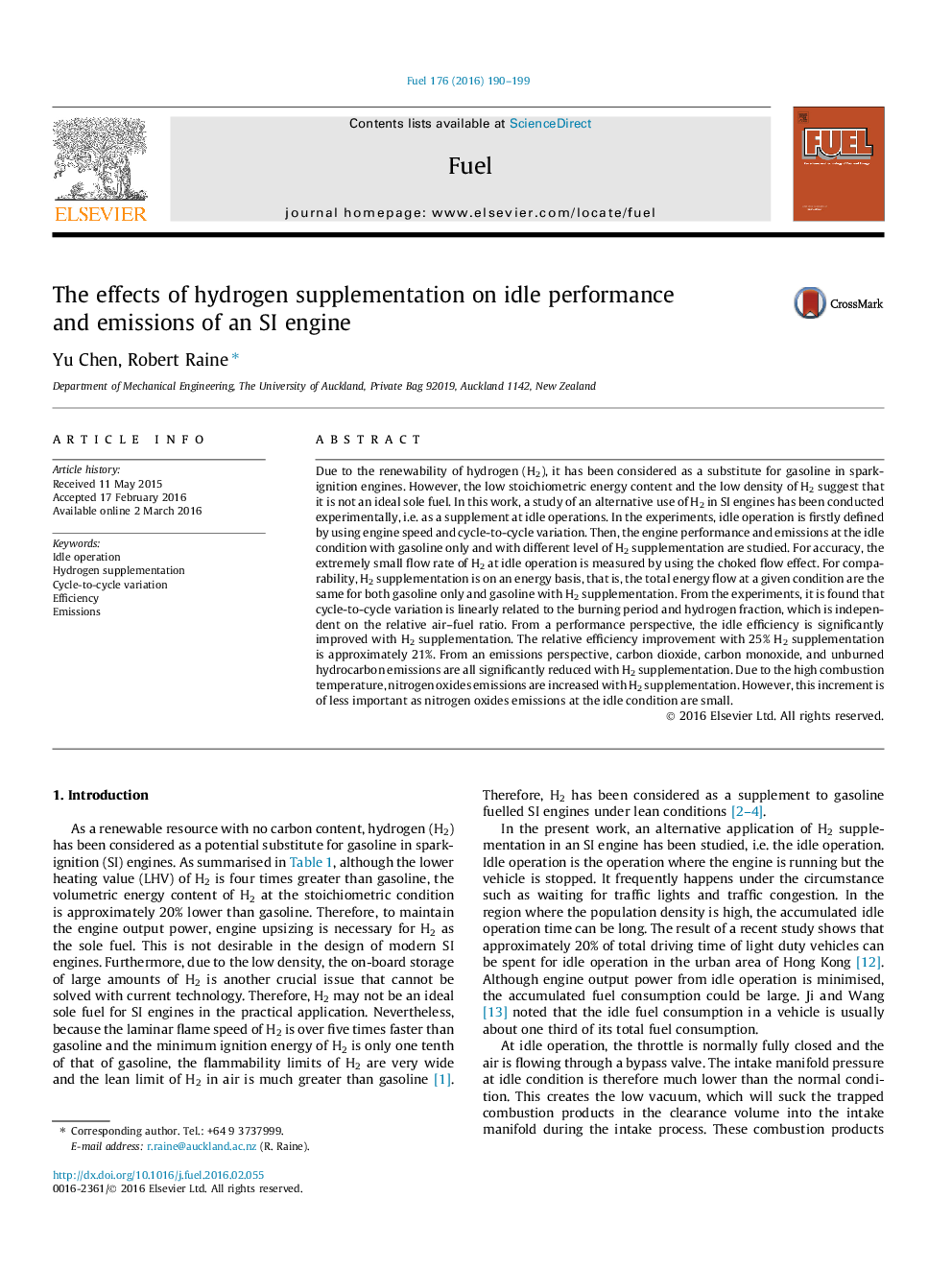| Article ID | Journal | Published Year | Pages | File Type |
|---|---|---|---|---|
| 205173 | Fuel | 2016 | 10 Pages |
Due to the renewability of hydrogen (H2), it has been considered as a substitute for gasoline in spark-ignition engines. However, the low stoichiometric energy content and the low density of H2 suggest that it is not an ideal sole fuel. In this work, a study of an alternative use of H2 in SI engines has been conducted experimentally, i.e. as a supplement at idle operations. In the experiments, idle operation is firstly defined by using engine speed and cycle-to-cycle variation. Then, the engine performance and emissions at the idle condition with gasoline only and with different level of H2 supplementation are studied. For accuracy, the extremely small flow rate of H2 at idle operation is measured by using the choked flow effect. For comparability, H2 supplementation is on an energy basis, that is, the total energy flow at a given condition are the same for both gasoline only and gasoline with H2 supplementation. From the experiments, it is found that cycle-to-cycle variation is linearly related to the burning period and hydrogen fraction, which is independent on the relative air–fuel ratio. From a performance perspective, the idle efficiency is significantly improved with H2 supplementation. The relative efficiency improvement with 25% H2 supplementation is approximately 21%. From an emissions perspective, carbon dioxide, carbon monoxide, and unburned hydrocarbon emissions are all significantly reduced with H2 supplementation. Due to the high combustion temperature, nitrogen oxides emissions are increased with H2 supplementation. However, this increment is of less important as nitrogen oxides emissions at the idle condition are small.
